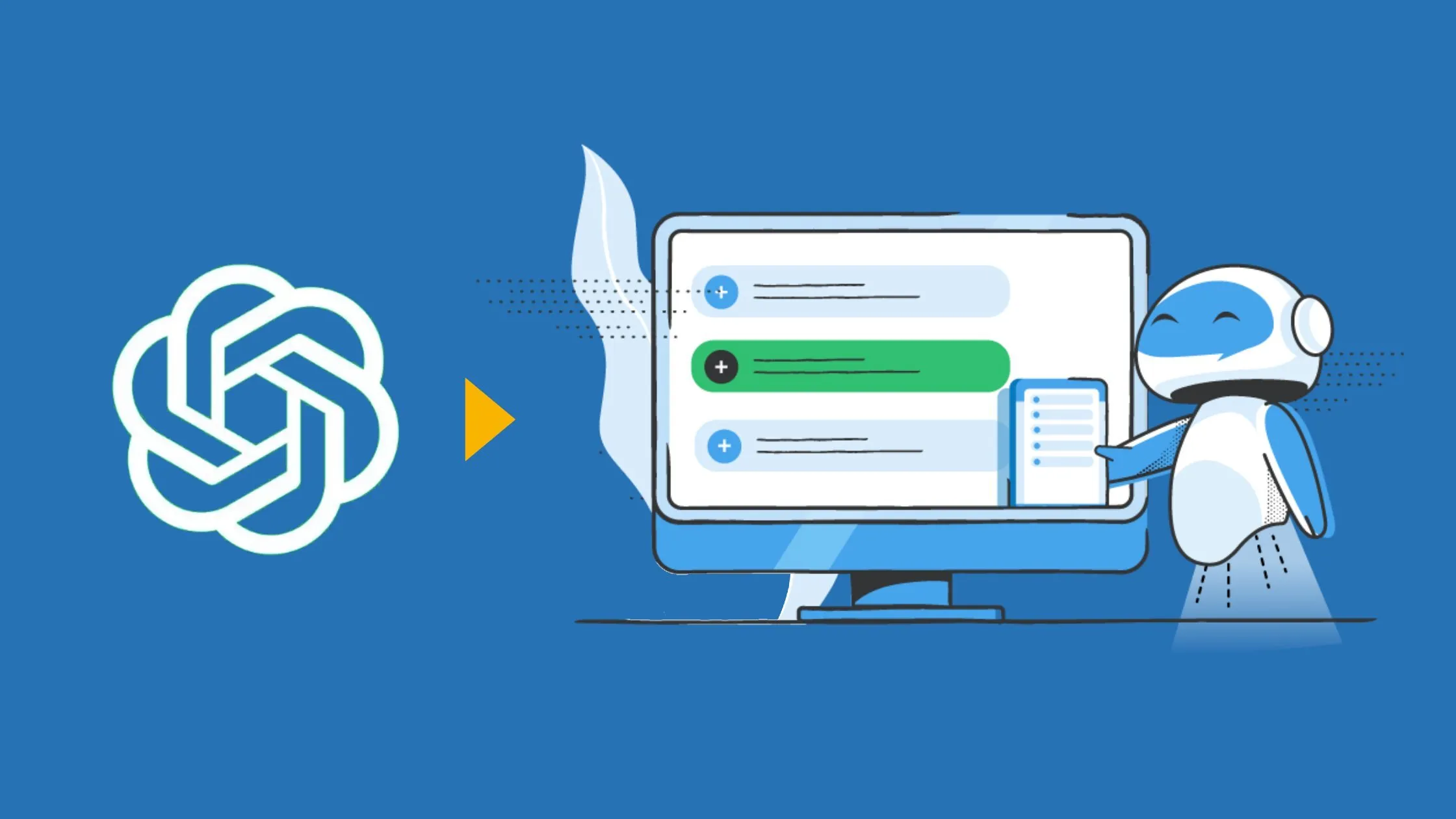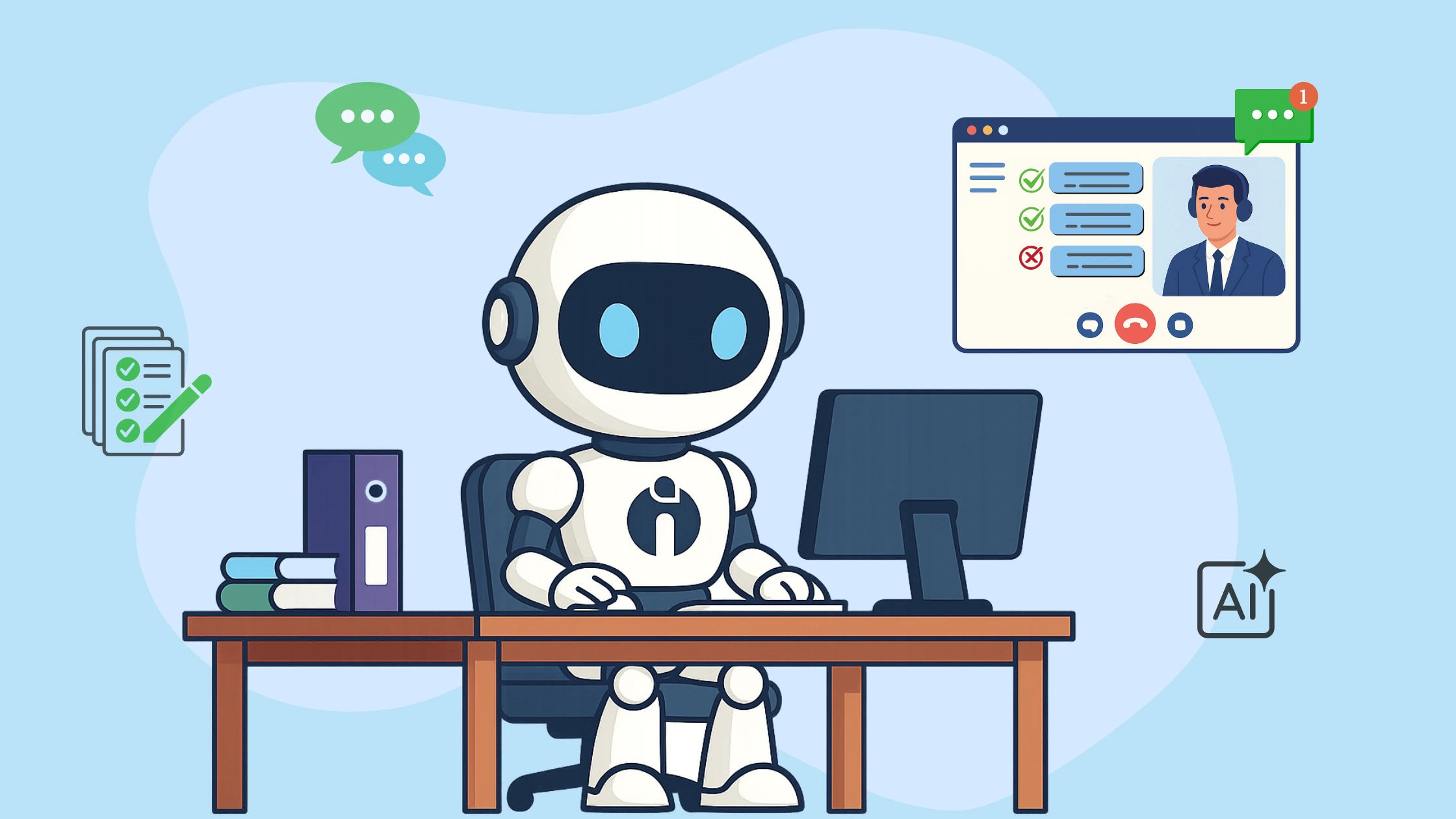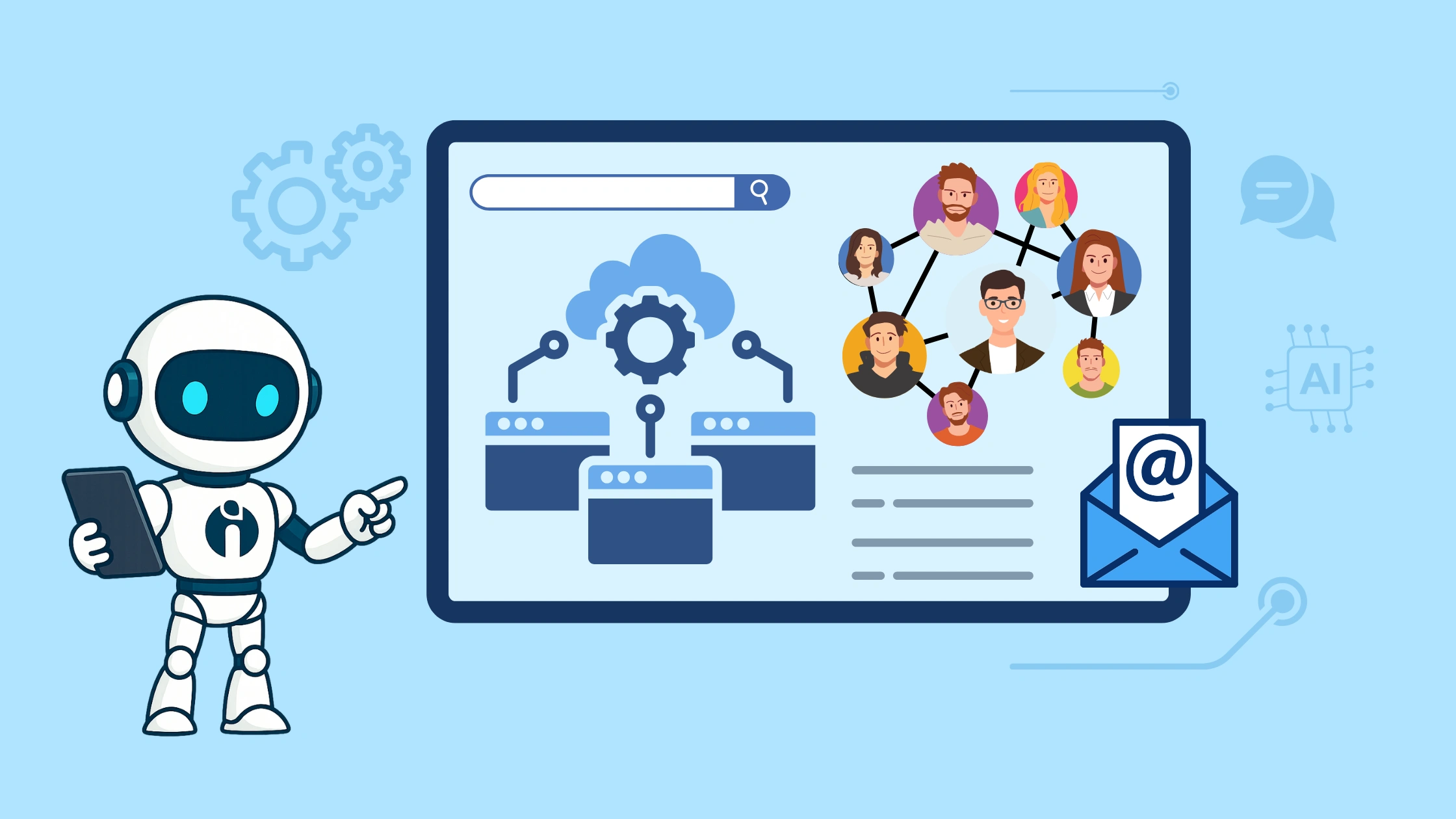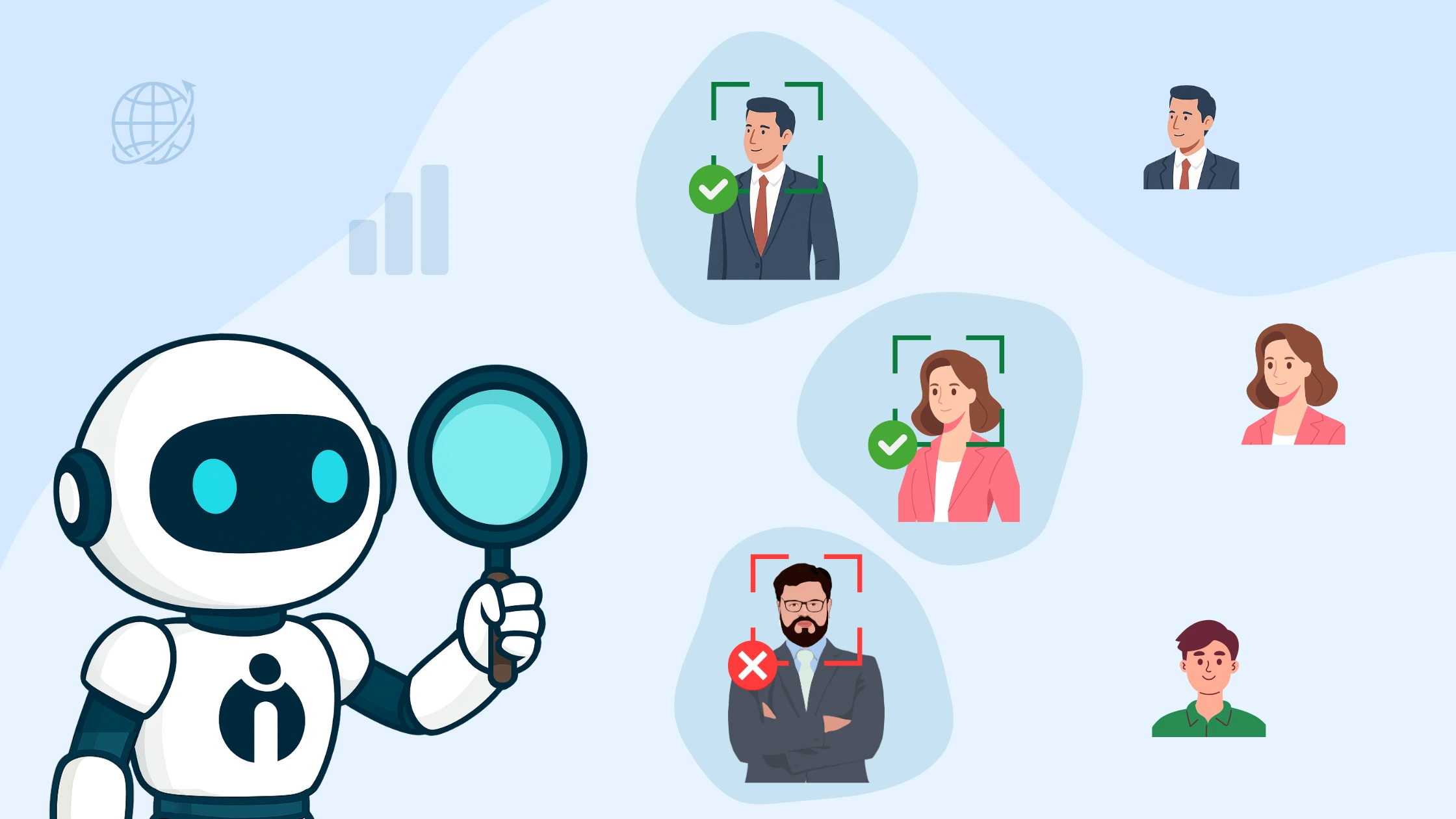TL;DR
- ChatGPT assists recruiters by automating repetitive writing tasks, improving efficiency and allowing more time for human interaction.
- It helps create tailored job descriptions, enhances candidate communication, supports interview preparation, and summarises CVs.
- ChatGPT promotes diversity by detecting biased language and encouraging inclusive hiring practices.
- Key benefits include time savings, improved candidate experience, bias reduction, and better decision-making support.
- Limitations exist, such as generic outputs and a lack of cultural fit assessment; human oversight remains crucial.
- Practical prompts can guide recruiters in various hiring stages, from sourcing to onboarding and evaluation.
- The future of recruitment involves deeper AI integration, personalisation at scale, and enhanced predictive insights, complementing rather than replacing recruiters.
How Does ChatGPT Improve the Hiring Process?
- Writes optimised job descriptions in seconds
- Draft personalised candidate emails
- Generates structured interview questions
- Summarises CVs and highlights key skills
- Improves diversity by removing biased language
- Supports onboarding documentation
By automating administrative writing tasks, recruiters save time and improve hiring consistency while maintaining human oversight.
Recruitment has always been people-centred, but in today’s job market, the pressure is higher than ever. Recruiters are juggling tight deadlines, candidate shortages, evolving skills gaps, and rising expectations from both employers and job seekers. Add to this the sheer volume of CVs and applications for every open role, and it’s easy to see why hiring teams often feel overwhelmed.
A report by LinkedIn revealed that 70% of recruiters say their workload has increased compared to pre-pandemic levels. Yet the demand for efficiency, personalisation, and fairness has never been greater.
This is where ChatGPT for recruitment steps in. It’s not about replacing recruiters, but about giving them a powerful assistant that can handle repetitive writing tasks, offer quick insights, and free up time for meaningful human interaction. Here, we’ll explore how ChatGPT helps recruiters at every stage of the hiring process, its benefits, limitations, and the future of AI in recruitment.
Understanding ChatGPT in Recruitment
At its core, ChatGPT is a language model designed to generate human-like text. For recruiters, this means instant help with everyday tasks: drafting emails, creating job adverts, summarising profiles, or even brainstorming interview questions.
According to the Mondo report (2025), 37% of organisations are actively integrating or experimenting with AI tools in their hiring processes. This rapid rise demonstrates that tools like ChatGPT for recruitment are no longer just experimental; they are becoming a mainstream part of modern hiring strategies.
In practice, ChatGPT acts like a co-pilot. It handles the admin and text generation while the recruiter makes the final decisions, applies empathy, and builds relationships with candidates.
How ChatGPT Helps Recruiters in the Hiring Process?
1. Crafting Job Descriptions and Adverts
Job descriptions are often a candidate’s first impression of a company. Poorly written ones can scare off applicants or attract the wrong people. Recruiters often spend hours trying to get the wording right.
With ChatGPT, recruiters can:
- Draft tailored job descriptions based on the role’s requirements.
- Optimise adverts with SEO-friendly keywords to appear higher in job searches.
- Detect and remove biased language, helping to attract more diverse applicants.
- Generate multiple versions of the same advert, saving time on A/B testing.
Example: Imagine you’re hiring for a “Marketing Executive”. ChatGPT can instantly generate three different versions of the advert: one more formal, one more engaging, and one more concise. Recruiters can then choose the tone that best fits the employer’s brand.
2. Enhancing Candidate Communication
Candidate experience is one of the biggest factors in employer branding. Poor communication often leads to frustrated job seekers and even rejected offers.
ChatGPT helps recruiters maintain timely, professional communication by drafting:
- Outreach emails to passive candidates on LinkedIn.
- Personalised follow-ups after interviews.
- Rejection letters that are empathetic and constructive.
- Clear instructions for interview preparation.
This ensures candidates feel valued and informed throughout the process. Instead of generic emails, recruiters can personalise ChatGPT’s drafts to sound warm and authentic without spending hours on admin.
3. Supporting Interviews
Interview preparation takes up a lot of recruiter time, from aligning questions to creating scorecards. ChatGPT can:
- Generate tailored interview questions based on skills, experience, or behaviours.
- Draft structured evaluation forms to keep feedback consistent.
- Provide example answers to help recruiters assess candidate responses.
- Summarise notes into reports for hiring managers.
Example: For a software developer role, ChatGPT could create technical and behavioural interview questions, ensuring consistency across interviewers. This reduces bias and helps hiring teams make fairer decisions.
4. Summarising Candidate Profiles and CVs
Recruiters often sift through hundreds of CVs per role. With limited time, it’s easy to overlook qualified candidates. ChatGPT can:
- Condense lengthy CVs into short, digestible summaries.
- Highlight relevant skills, certifications, and career achievements.
- Draft comparison notes between shortlisted candidates.
This allows recruiters to quickly identify top talent without missing crucial details.
5. Promoting Diversity and Inclusion
Diversity in hiring isn’t just a buzzword; it’s a business advantage. ChatGPT supports inclusive hiring by:
ChatGPT supports inclusive hiring by:
- Spotting biased terms in job descriptions
- Suggesting neutral alternatives.
- Helping recruiters write inclusive outreach messages.
Recruiters using ChatGPT can ensure that every piece of communication encourages applications from diverse talent pools.
6. Boosting Productivity with Everyday Tasks
Recruitment involves many small, repetitive tasks. While each one may not take long, they add up to hours of lost productivity. ChatGPT can:
- Create new versions of job posts with different tones and styles.
- Rewrite candidate communication for clarity and professionalism.
- Generate onboarding templates and FAQs for new hires.
- Brainstorm creative ways to engage passive candidates.
Example: Instead of spending 30 minutes rewriting a rejection email, ChatGPT can draft it in seconds, leaving the recruiter free to move on to higher-value work.
What are the key benefits of using ChatGPT for recruitment?
The advantages of ChatGPT go beyond time savings. When used strategically, it helps recruiters elevate the entire hiring experience for both candidates and employers.
- Time savings: Tasks that once took hours now take minutes. For example, writing tailored job adverts, interview questions, or rejection emails can be done in seconds, allowing recruiters to dedicate more time to sourcing talent or engaging with hiring managers.
- Stronger candidate experience: Job seekers value clear and timely communication. ChatGPT ensures candidates receive professional, personalised responses, which strengthens employer branding and reduces candidate drop-off rates.
- Bias reduction: Subtle bias in job descriptions or interview questions can unintentionally discourage certain groups from applying. ChatGPT helps recruiters rephrase content in a neutral, inclusive way, opening doors to a broader talent pool.
- Productivity boost: By handling repetitive administrative tasks, ChatGPT frees recruiters to focus on strategic aspects like employer branding, building talent pipelines, and candidate relationship management.
- Better decision support: With summarised CVs, structured interview notes, and comparison reports, recruiters can make quicker and more informed hiring decisions. This minimises the risk of overlooking qualified candidates and speeds up the hiring cycle.
- Scalability: Whether hiring for one role or a hundred, ChatGPT can generate consistent outputs at scale, making it easier for teams to handle fluctuating recruitment demands.
ChatGPT vs Traditional Recruitment Workflows
| Task | Traditional Method | With ChatGPT |
|---|---|---|
| Job Description Writing | 1–2 hours manual drafting | Draft in under 2 minutes |
| Candidate Emailing | Template editing repeatedly | Instant personalized drafts |
| CV Screening | Manual summary review | Auto-generated skill summaries |
| Interview Preparation | Manually created questions | Role-specific structured questions |
Limitations and the Need for Human Oversight
As powerful as ChatGPT is, it’s not without limitations. Recruiters should be aware of:
- Generic output: Drafts may need personalisation to align with employer branding.
- Cultural fit assessment: AI cannot gauge values, motivations, or interpersonal skills.
- Risk of errors: ChatGPT may produce outdated or inaccurate information if unchecked.
- Data security: Sensitive candidate details should never be entered into public AI tools.
The golden rule? Use ChatGPT as an assistant, not a decision-maker. Human oversight remains essential.
Practical ChatGPT Prompts for Recruiters and HR Professionals
Below is a curated list of practical prompts that recruiters can use throughout the hiring journey, from understanding job roles and sourcing candidates to screening, communication, and onboarding. Each prompt is written in a human, recruiter-friendly style, so you can copy, paste, and tweak it for your own workflow.
1. Job Analysis & Role Definition
Prompt:
Act as a senior HR professional. I need to create a detailed job description for a Software Engineer in the IT Department. Include key responsibilities, required skills, qualifications, competencies, and preferred experience. Ensure it is clear, engaging, and suitable for publishing on job portals."
2. Candidate Sourcing & Search
Prompt:
"Act as an expert recruiter. Suggest the best sourcing strategies for finding candidates for the Marketing Manager position in the Marketing Department. Include recommended job boards, social media platforms, Boolean search strings for LinkedIn, and niche talent pools. Prioritise efficiency and quality of candidates."
3. Job Advertisement Writing
Prompt:
"Act as a recruitment marketing specialist. Write a compelling job advertisement for a Data Analyst in the Analytics Department. Ensure it is appealing to top talent and highlights company culture, benefits, and career growth opportunities."
4. Screening & Shortlisting Candidates
Prompt:
"Act as a professional recruiter. Suggest a structured candidate screening process for Customer Support Executive in the Customer Service Department. Include CV screening criteria, red flags, key skills to focus on, and a scoring system to shortlist the most suitable candidates."
5. Interview Preparation
Prompt:
"Act as an experienced HR interviewer. Prepare a list of interview questions for a Sales Executive in the Sales Department, including technical, behavioural, and situational questions. Include tips for assessing candidates' answers effectively and indicate which questions are suitable for different experience levels."
6. Candidate Communication Templates
Prompt:
"Act as a recruitment professional. Draft a polite, professional email to:
a) Invite a Project Manager candidate for an interview,
b) Follow up after a CV submission,
c) Reject a candidate,
All while maintaining a positive candidate experience."
7. Skills Assessment & Evaluation
Prompt:
"Act as an HR assessment expert. Design a skills test or practical evaluation for a Graphic Designer in the Design Department. Include instructions, expected results, and a scoring guide to objectively compare candidates' capabilities."
8. Reference & Background Checks
Prompt:
"Act as an HR compliance officer. Create a structured reference check questionnaire for a Finance Analyst in the Finance Department. Include questions to verify skills, work ethics, team collaboration, and reliability. Also, suggest best practices for conducting background checks."
9. Offer & Negotiation
Prompt:
"Act as a senior HR professional. Draft a competitive job offer letter for an HR Coordinator in the HR Department. Include salary, benefits, probation period, notice period, and any additional perks. Provide tips for negotiating with candidates while maintaining fairness and professionalism."
10. Onboarding & Orientation
Prompt:
"Act as a talent management expert. Create a structured onboarding plan for a Software Tester in the IT Department. Include pre-joining tasks, first-day schedule, training, buddy assignment, and 30/60/90-day milestones to ensure smooth integration."
11. Recruitment Metrics & Reporting
Prompt:
"Act as a recruitment analytics specialist. Suggest key metrics to track the effectiveness of the hiring process for the Operations Manager in the Operations Department. Include suggestions for dashboards, KPIs, and ways to optimise sourcing, screening, and selection based on data."
What does the future of recruitment with AI look like?
AI is reshaping the world of hiring, and ChatGPT for recruitment is only the beginning. Over the next few years, we can expect AI, including ChatGPT, to become even more deeply integrated into recruitment strategies.
- Seamless integration with recruitment platforms: Instead of using ChatGPT separately, recruiters will see it built directly into their Applicant Tracking System or CRM, making the process of drafting job posts, analysing CVs, or communicating with candidates smoother than ever.
- Personalised candidate engagement at scale: AI will enable recruiters to reach thousands of candidates with customised messages, balancing efficiency with a human touch. For instance, ChatGPT could tailor outreach emails to highlight why a candidate’s unique skills are a good match for a role.
- Predictive insights: Beyond text generation, AI will evolve to help recruiters predict candidate fit, cultural alignment, and even potential career progression within the organisation. This will reduce bad hires and improve retention rates.
- Global talent accessibility: As remote and hybrid work continue to rise, AI will facilitate easier engagement with candidates across diverse geographies, languages, and companies' cultures. ChatGPT’s multilingual capabilities already give recruiters a head start.
- Evolving recruiter roles: Instead of replacing recruiters, AI will shift their responsibilities. Recruiters will move away from heavy admin work and spend more time building trust, assessing cultural fit, and shaping workforce strategy.
Conclusion
Recruitment is complex, fast-paced, and people-driven. ChatGPT offers recruiters a powerful way to simplify the process, from writing job descriptions and communicating with candidates to supporting interviews and promoting inclusivity.
By saving time on repetitive tasks, ChatGPT for recruitment enables recruiters to focus on what matters most: building human connections, understanding candidates’ motivations, and making well-informed hiring decisions.
The future isn’t about AI replacing recruiters; it’s about AI working with recruiters. And for those willing to embrace it, ChatGPT isn’t just a helpful tool; it’s a competitive advantage.
Forward-thinking teams are now exploring how ChatGPT can work hand-in-hand with advanced recruitment solutions such as iSmartRecruit. By combining AI-driven assistance with the automation and intelligence of recruitment software, hiring teams can achieve a more efficient, personalised, and inclusive hiring process.
Frequently Asked Questions (FAQs)
1. What is ChatGPT for recruitment?
ChatGPT for recruitment refers to the use of OpenAI’s conversational AI tool to support hiring tasks. It can assist with writing job adverts, drafting outreach emails, generating interview questions, and even providing guidance on unbiased job descriptions.
2. How does ChatGPT help recruiters save time?
Recruiters often spend hours on repetitive tasks such as writing follow-up emails or reviewing CVs. ChatGPT speeds up these processes by producing high-quality drafts in seconds, allowing recruiters to dedicate more time to candidate engagement and decision-making.
3. Can ChatGPT improve the candidate experience?
Yes. By helping recruiters craft timely and personalised messages, ChatGPT ensures candidates receive professional, consistent, and empathetic communication throughout the hiring journey. This strengthens the employer brand and leaves candidates with a positive impression.
4. Is it safe to use ChatGPT with candidate information?
Yes, if handled correctly. Recruiters should avoid entering sensitive personal data into ChatGPT and instead focus on anonymised or general information to comply with data protection standards such as GDPR.
5. What are the limitations of using ChatGPT in hiring?
While ChatGPT is excellent for content generation and communication support, it cannot evaluate cultural fit, soft skills, or emotional intelligence. It also requires clear prompts, and recruiters should always check its outputs for accuracy and relevance.













